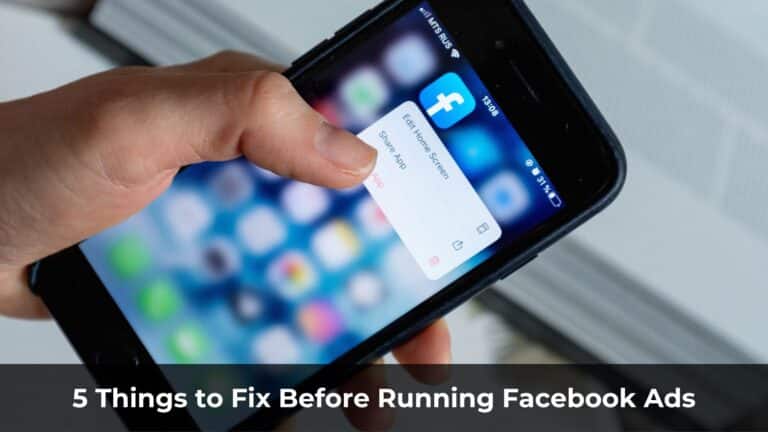If you’ve ever caught yourself scrolling endlessly, feeling overwhelmed, stressed, distracted, or even losing sleep because of your phone—you’re not alone. Maybe you’ve realized that what once felt like a helpful tool is now quietly running your life.
The numbers are eye-opening:
- The average person taps or swipes their phone 2,617 times a day. Yes, you read that right—over two thousand times (source).
- We spend about 3 hours and 15 minutes daily on our phones. Imagine if that time went into learning online business—you could become a marketing pro in just a few years (source).
- On average, people check their phones every 3 minutes, which dramatically reduces our ability to focus.
In this article, I’ll walk you through the hidden costs of excessive smartphone use—the overlooked ways it damages your health, focus, and long-term well-being. It’s time to see the danger for what it truly is.
Table of Contents
ToggleSmartphone addiction weakens your communication skills
These days, it’s not uncommon to see people glued to their phones. Everyone knows it’s not great to be on your phone all the time—but what exactly are the consequences?
Studies have shown that overusing smartphones can significantly impair your ability to communicate effectively (source).
And we all know communication is everything. It’s the key to building relationships, advancing in your career, and leading a fulfilling life. But when you’re constantly absorbed in your phone, your social and emotional intelligence takes a hit. You become less present, less articulate, and less confident in real-world interactions.
Imagine this: You’re giving a presentation at work. Instead of delivering a compelling, heartfelt talk that connects with your audience, you sound robotic—like you’re reading off a script. The room goes silent… not in awe, but in boredom. People are mentally checking out before you even finish your first slide.
It Weakens Short-Term Memory and Kills Your Focus
Excessive phone use has been linked to reduced short-term memory and impaired problem-solving abilities (source).
In fields that demand deep focus—like digital marketing—sharp thinking is your biggest asset. Success depends on your ability to solve problems quickly and strategically. Better performance leads to better results, and better results mean more revenue.
But if your memory is constantly failing you—forgetting tasks, mixing up priorities, getting distracted every few minutes—your work quality drops. And when performance drops, don’t be surprised if promotions or raises never come.
Speaking as a leader: if I can’t stay focused because I’m addicted to my phone, my whole team suffers. Projects fall apart. The business takes a hit. People lose motivation and start drifting away. That’s the real cost of distraction.
Smartphone Addiction Can Ruin Your Sleep and Damage Your Eyes
Our phones and computers emit blue light—a type of artificial light that disrupts your natural sleep cycle and strains your eyes. Unlike natural daylight, blue light tricks your brain into thinking it’s still daytime, making it harder for your body to produce melatonin—the hormone that helps you sleep.
This isn’t just theory—I’ve experienced it firsthand.
There was a long stretch of time when I struggled with chronic insomnia. I would lie in bed with burning eyes, constantly blinking away tears. My eyes felt dry and sore every night. I had to rely on eye drops just to feel a little relief. And even then, it often took me more than an hour to fall asleep.
The root of the problem? I had zero control over my screen time. I used my phone and laptop late into the night without limits, and it took a real toll on my health—especially my eyes and my ability to rest.
The scary part is, this kind of damage builds up quietly. You don’t notice it until it’s already affecting your quality of life.
Phone Addiction in Kids Can Lead to Negative, Stubborn Behavior
Letting children use smartphones freely can shape their personalities in ways you might not expect—or want. Studies and real-world experience both show that excessive screen time can make kids more irritable, emotionally unstable, and even aggressive. These behavioral changes, if left unchecked, can carry over into adulthood, affecting their relationships, mindset, and ability to thrive.
If you don’t actively monitor what they’re watching, it’s dangerously easy for them to absorb harmful content or develop unhealthy habits. And once bad habits take root, they’re extremely difficult to break—some may even last a lifetime.
I used to think I could just set time limits and everything would be fine. But smartphones are addictive—plain and simple. Even with limited screen time, children often crave more, and the desire grows stronger over time. Before you know it, the boundaries you set start to slip, and things spiral out of control.
If you notice your once sweet and cooperative child becoming more impatient, defiant, or emotionally distant after using the phone, take it seriously. That change in personality isn’t random. It’s a sign that it’s time to step in and take strong action—before the screen starts shaping who your child becomes.
Increases the Risk of Obesity and Disease—Often Without You Noticing
This one’s backed by science (source). And honestly, it makes total sense: the more time you spend glued to your phone, the less time you spend moving your body. A sedentary lifestyle combined with screen addiction doesn’t just lead to weight gain—it quietly opens the door to a host of other health problems.
What’s dangerous is how silently these issues creep in. By the time symptoms show up, it’s often too late for a quick fix. Recovery becomes harder, longer, and more costly.
People hate being sick—but ironically, most don’t take proactive steps to avoid it. They wait until things go wrong before doing anything, living by the “deal with it later” mentality.
Smart people, on the other hand, can anticipate problems before they happen. That’s why high performers and successful individuals are often very intentional with how they use technology. They understand that discipline today prevents damage tomorrow.
Wi-Fi Radiation May Quietly Harm Your Health
If your exposure is occasional, it might not seem like a big deal. But what happens when you’re surrounded by Wi-Fi signals 24 hours a day, every single day?
Let’s be honest—many of us keep our phones right next to us at all times. Even when we sleep, the phone is often just inches away on the nightstand, constantly connected to Wi-Fi. If that’s your habit, it may be time to rethink it.
There’s growing concern around the long-term effects of constant Wi-Fi exposure—especially when combined with 5G networks, which some studies have linked to potential health risks.
Research has identified several possible negative effects of long-term Wi-Fi exposure, including:
- Disruption of protein synthesis
- Frequent insomnia
- Memory decline
- Reduced sperm quality
- Elevated heart rate
- Headaches and dizziness
- Fatigue and energy loss, especially in women
- Poor growth in children
- Noticeable decrease in brain function
- Reduced fertility
While the science is still evolving, the risks are real enough to warrant caution. Even if we can’t fully escape wireless signals in today’s world, we can make smarter choices—like turning off Wi-Fi at night, keeping phones away from the bed, and limiting screen time.
Prevention always beats treatment.
Start Valuing Your Life More Than Your Phone
Have you ever noticed how people react when they fall on the street? What’s the first thing they check? Not their injuries—but their phone. They scramble to see if the screen cracked or if the device still works, often before even noticing they’re bleeding.
It’s as if the phone matters more than their own body.
Tim Ferriss, successful entrepreneur and author of the bestselling book The 4-Hour Workweek, took drastic action when he realized how distracting smartphones had become. He ditched his smartphone entirely and went back to using a basic “dumb phone”—no apps, no social media, no distractions.
According to Ferriss, that one decision dramatically boosted his productivity and mental clarity.
I’ve experienced something similar. After five long years battling smartphone addiction, I finally made a bold move—I smashed my touchscreen phone. Yes, literally. Most people wouldn’t dare do something that extreme, but for me, it was the reset I desperately needed.
And the result? A clearer mind, more focus, and the return of real freedom.
Final Thoughts
Let’s be honest—smartphones are incredibly useful. We use them to listen to music, watch movies, play games, even secure important accounts with two-factor authentication. They’re not the enemy. The real problem lies in how they’re designed to keep us hooked.
As someone who works in digital marketing, I’ve seen it firsthand: tech companies are in a constant race for your attention. The longer they keep you on their platforms, the more money they make. That’s why apps are carefully engineered—using psychological tricks, behavioral data, and A/B testing—to be as addictive as possible, all while staying within legal boundaries.
So if you’re struggling with smartphone addiction, know this: it’s not entirely your fault. These companies—Facebook, Instagram, YouTube, Reddit, mobile game developers, and especially TikTok—have spent millions crafting digital environments that are hard to escape.
But awareness is power.
Once you understand the game, you can choose to stop playing it. You can take back control of your time, your energy, and your life. Your phone should be a tool that serves you—not the other way around.













